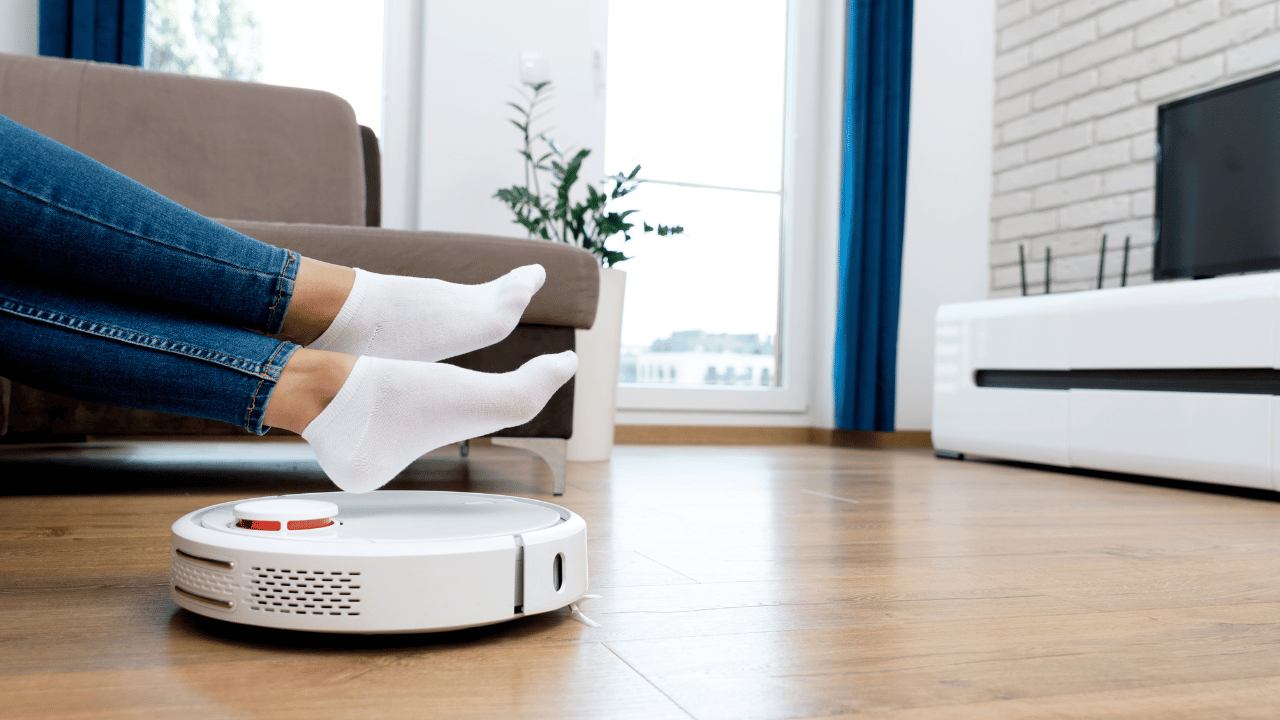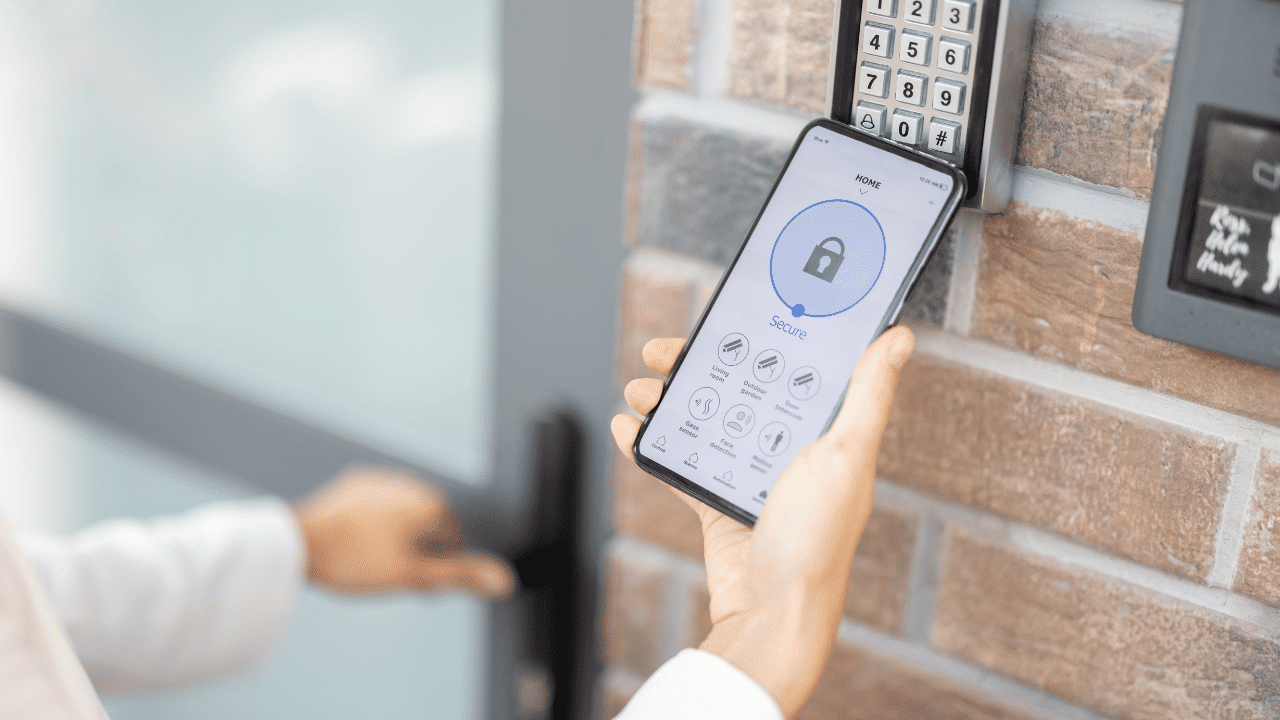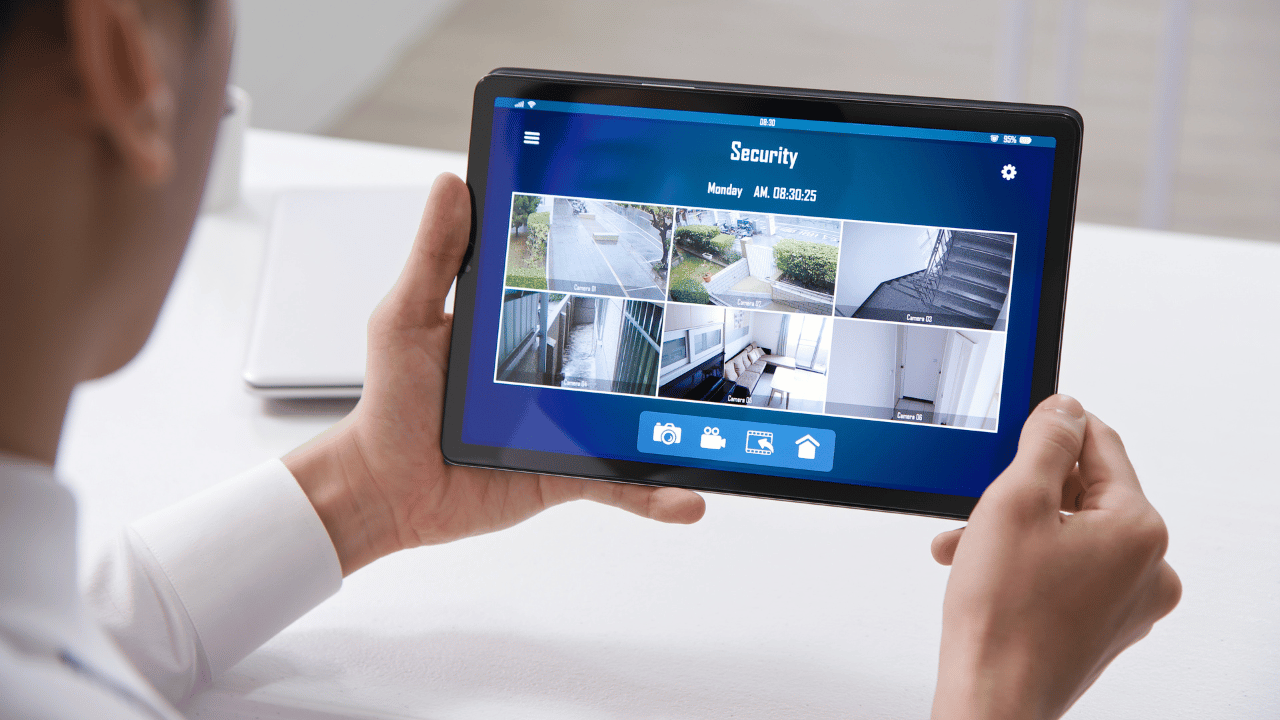Last Updated on September 11, 2023 by Pro Handyman Australia – Editorial Team
Inefficient home designs often lead to unnecessary energy and water wastage, a prominent issue especially in emerging markets. Here, the scarcity of resources combined with high utility costs, in comparison to the average income, aggravates the problem. Moreover, even efficiently designed homes can consume resources beyond anticipated levels based on residents’ behaviors. Such surges in monthly bills can adversely impact homeowners, sometimes making it challenging to manage monthly mortgage payments.
Integrating Artificial Intelligence with Human Behavior
There exists a promising solution at the crossroads of artificial intelligence (AI) and human behavioral patterns. The genesis of this solution lies in smart meters—devices that can be embedded in homes to guide residents towards wiser energy consumption decisions on a daily basis. These meters not only track utility usage and indoor temperatures but, when paired with AI, can leverage this information for actionable insights.
The Evolution of an AI-Powered Framework for Smart Homes

Though still an emerging concept, an AI-driven model can aggregate data from these smart meters, ensuring the privacy of residents by anonymizing the data. This data, when analyzed and interpreted, can be invaluable for a diverse group of stakeholders ranging from homeowners and constructors to utility providers and government bodies.
In essence, by integrating AI with smart meters, our homes could embody the principle of biomimicry. Just as redwood trees support and safeguard one another via their interlinked roots, interconnected homes, powered by AI, could optimize resource consumption and promote sustainable living.
The Rise and Significance of AI in Home Management
Artificial intelligence has come a long way since its inception over fifty years ago. The rapid advancements in this field over recent years owe their momentum to the progress in machine learning, coupled with enhancements in computing abilities, data storage capacities, and communication networks. In this context, AI can be perceived as the craft of designing machines that can think, learn, and make decisions—a tool poised to revolutionize how we manage and consume resources in our homes.
The Evolution of AI in Smart Home Systems

The transition from traditional homes to smart homes represents one of the most profound advancements in human residential experiences. With the incorporation of Artificial Intelligence (AI), this experience has reached an unprecedented level. Initially, AI might have been a luxury, confined to the elite due to its high costs. However, with the march of technology, AI has become increasingly affordable and accessible. Through AI, homeowners can tap into numerous benefits, from heightened security to enhanced daily convenience. By minimizing manual interventions, AI gives individuals more time to focus on other important aspects of life.
AI-Powered Kitchens: Culinary Expertise at Your Fingertips
Robotic kitchens powered by AI have gained traction globally. These kitchens, characterized by their intelligence and automation, are synonymous with hygiene, efficiency, and culinary precision. Equipped with a screen interface, they allow homeowners to select from a plethora of recipes and monitor the cooking process. These robots, equipped with sensors and cameras, can identify ingredients and kitchen tools, ensuring a seamless cooking experience. What sets them apart is their ability to mimic human actions, from picking ingredients to adjusting temperatures and even cleaning up post-cooking. While they cater to the automated cooking needs, they’re also designed keeping in mind human interactions, ensuring a balance between manual and automated cooking. Whether you’re eyeing a smart kitchen integrated with the Internet of Things (IoT) or a fully-automated one, both can be tailored to align with home aesthetics, from premium marble finishes to Corian worktops.
Windows with a Brain: Smart AI-Enhanced Windows
Embracing AI-based windows means inviting thermal comfort into your abode. These windows gauge external temperatures and air quality, adjusting their positions for optimal indoor comfort. They use a persona-based approach, considering the homeowner’s historical preferences and their current location within the house. Their prowess doesn’t end at comfort; they also bolster security. With in-built alert systems, they notify homeowners of any breach attempts, and some advanced versions even possess facial recognition cameras and alarm systems to deter potential intruders. Their seamless integration with other smart home devices further enhances home security and convenience.
Locks that Think: Advancing Home Security with AI-Based Locks

A smart home’s security framework is incomplete without intelligent locking systems. AI-based locks redefine home security by eliminating the vulnerabilities of physical keys. They ensure access is granted only to authorized individuals and are equipped with cameras that document every individual at the door. The high-definition recordings can be crucial for security concerns and are automatically stored in the cloud for easy access. These locks are not just about barring unauthorized entry; they also recognize the homeowner, facilitating auto-unlock as they approach. Their intelligence enables them to detect anomalies and send real-time alerts, making them especially valuable for families, as they can track entry timings.
Optimizing Irrigation with Artificial Intelligence
Early Detection of Irrigation Leaks
Water, being a precious resource, should be utilized judiciously. Unnoticed leaks can escalate a farmer’s expenses and lead to substantial wastage. The integration of AI in agricultural practices offers a solution to this challenge. Modern AI tools, harnessing aerial visuals, individual plant thermal images, and infield data, offer a comprehensive understanding of a farm’s irrigation system. Such tools not only send timely alerts about affected areas but also pinpoint specific irrigation anomalies that demand immediate attention. Moreover, they excel in detecting pivot-related leaks, often overlooked by manual inspection, guiding farmers on rectifying these irregularities.
Embracing AI for Efficient Kitchen Gardens
Harnessing AI in Urban Farming
Despite the myriad benefits of kitchen gardens, such as substantial savings on grocery bills and access to fresh produce, urban dwellers often lack the space or expertise to cultivate one. Enter the world of AI-enhanced kitchen gardens. Several innovative companies are tapping into AI’s potential to design and monitor kitchen gardens suitable for both indoor and outdoor settings.
The Hydroponic Revolution
One groundbreaking innovation is the hydroponic system. By eliminating the need for soil, this system relies on nutrient-rich solutions to nurture a variety of fresh, organic vegetables indoors. Equipped with cameras and AI-driven sensors, these setups ensure optimal lighting and watering conditions for plants. Moreover, dedicated applications offer guidance to users on garden maintenance, while the embedded AI sensors detect potential issues, providing timely solutions. Some advanced systems, like the one reminiscent of Gardyn, boast the capacity to support up to 30 plants and offer a choice of 20 different vegetable varieties.
AI’s Pivotal Role in Garden Maintenance

There’s an array of AI-powered hardware and software solutions designed specifically for home vegetable gardens. Once integrated, these systems take over various gardening tasks, from planting seeds and watering to weed removal and monitoring plant health. Furthermore, they act as a deterrent for birds and rodents. AI-backed sensors, which continuously monitor parameters like temperature, moisture levels, soil nutrition, and light, play a pivotal role in these gardens. They assess the garden’s evolving conditions, recommending suitable plant varieties to ensure optimal yield.
A Bright Future with AI-driven Gardening
The future of kitchen gardens is illuminated by the promise of AI. A testament to this is the advent of solar-powered robots that expertly remove weeds. With the rapid advancements in AI, the horizon for AI-enhanced kitchen gardens looks promising and verdant.
Additional Predictions and Possibilities of the AI role in Smart Homes
The world we live in has been gradually changing, but the pace has become seemingly faster with the advent of Artificial Intelligence (AI). This transformation is particularly evident in our homes. The way we perceive comfort, convenience, and security is being reshaped by AI technologies. By understanding the role of AI in smart homes, we not only prepare ourselves for a technologically advanced future but also reap the myriad benefits it brings along. Let’s delve into the myriad advantages of understanding this fascinating intersection of AI and smart homes.

1. Anticipation Leads to Preparedness
Understanding the trajectory of AI in smart homes is akin to possessing a roadmap for the future.
- Future Investments: Knowing what’s on the horizon allows homeowners to make informed decisions regarding investments in smart home tech, ensuring that they don’t invest in soon-to-be-outdated technologies.
2. Enhanced Energy Efficiency
AI-driven smart homes have the capability to learn and adapt based on our habits, leading to more efficient energy use.
- Automated Adjustments: By predicting your behavior, AI systems can adjust heating, lighting, or cooling just before you need it, ensuring optimal energy consumption.
3. Elevating Home Security
With AI, home security isn’t just reactive but can be proactive.
- Threat Prediction: Advanced systems can potentially identify patterns that precede break-ins or security breaches, allowing preemptive actions.
- Facial Recognition: Over time, AI can learn to recognize frequent visitors, family members, or service workers, differentiating them from potential intruders.
4. Seamless Integration with Daily Routines
AI isn’t just about turning devices on or off; it’s about integrating tech seamlessly into our daily lives.
- Predictive Schedules: Imagine your coffee machine starting just as you’re about to wake up or your favorite playlist turning on as you enter your home. This is the predictive power of AI in action.
5. Pioneering Health and Wellness Solutions
Smart homes powered by AI can be instrumental in ensuring the health and wellness of their inhabitants.
- Health Monitoring: AI can potentially monitor irregularities in the resident’s health, track medication routines, or even predict potential health risks based on data.
- Enhanced Comfort: Systems can adjust lighting, music, or room temperature based on the detected mood of the inhabitants, ensuring optimal comfort levels.
6. Financial Savings
The blend of AI and smart home technologies can lead to significant financial savings.
- Optimized Consumption: By learning your patterns, AI ensures devices are only active when needed, reducing unnecessary electricity consumption and resulting in lowered bills.
7. Customized User Experiences
Everyone has unique preferences, and AI-driven smart homes can cater to these individual needs.
- Tailored Environments: Whether it’s the kind of music you like in the morning or the preferred lighting for your reading sessions, AI systems adjust environments to suit individual preferences.
8. Proactive Maintenance
Instead of waiting for an appliance to break down, AI can predict when maintenance is due or when a fault might occur.
- Predictive Alerts: AI can monitor wear and tear, sending alerts about potential breakdowns or suggesting maintenance schedules.
9. Enhancing Real Estate Value
An AI-equipped smart home is an appealing proposition for potential homebuyers who are tech-savvy.
- Future-ready Homes: Such homes can be a significant selling point, suggesting to buyers that the property is aligned with future technological advancements.
10. Redefining Entertainment
Entertainment in AI-driven smart homes goes beyond regular TV or sound systems.
- Immersive Experiences: Predictive AI can curate movie or music playlists based on your mood, recent conversations, or even the kind of day you’ve had.
11. Facilitating Remote Control and Monitoring
Even when away, homeowners can stay connected to their AI-integrated smart homes.
- Real-time Updates: Whether it’s security footage, energy consumption stats, or system health, AI can curate and send real-time updates to homeowners remotely.
The convergence of AI and smart homes promises a future where our living spaces are more in tune with our needs, aspirations, and well-being than ever before. Understanding the evolving role of AI in this sphere isn’t just about keeping up with technology; it’s about harnessing its potential to redefine the very concept of home. The predictions and possibilities are endless, but one thing is clear: our homes are getting smarter, and they’re ensuring that we live smarter too. Embracing this knowledge prepares us for a future that’s not only technologically advanced but also deeply personal and intuitive.
Conclusion

In today’s rapidly evolving technological landscape, the fusion of Artificial Intelligence (AI) with smart homes is not just a mere trend; it’s a transformative shift redefining how we interact with our living spaces. The promises and predictions surrounding AI in smart homes extend beyond mere convenience. They present a vision of homes that are more energy-efficient, secure, and attuned to the needs of their inhabitants. Whether it’s through optimizing irrigation in our gardens, enhancing security protocols, or even creating responsive kitchen systems, AI is undoubtedly ushering us into a new era of domestic living. The predictions may seem futuristic, but the current trajectory indicates a seamless integration of AI in our daily lives, making homes that are not just smart, but also intuitive, proactive, and adaptive. As we stand on the cusp of this revolution, one thing is certain: the home of the future, powered by AI, will redefine comfort and convenience in ways we are only beginning to imagine.
